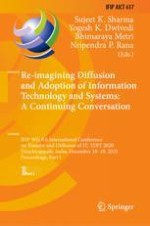2020 | OriginalPaper | Chapter
Exploring the Students Feelings and Emotion Towards Online Teaching: Sentimental Analysis Approach
Authors : T. PraveenKumar, A. Manorselvi, K. Soundarapandiyan
Published in: Re-imagining Diffusion and Adoption of Information Technology and Systems: A Continuing Conversation
Publisher: Springer International Publishing
Activate our intelligent search to find suitable subject content or patents.
Select sections of text to find matching patents with Artificial Intelligence. powered by
Select sections of text to find additional relevant content using AI-assisted search. powered by
